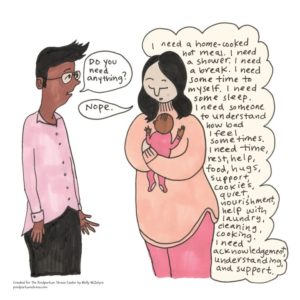
Have you ever been to a counseling session? Do you wonder what to expect? Do you ever find your self considering seeking counseling, but resisting because of pre-conceived notions and expectations? Ever wonder if you have to lay down on a couch and look at funky pictures while listening to a bunch of psycho-gable? Believe it or not, I have too, for all of the above. You see, the reason is that every therapist is different, and they run their practice in different ways. I can, however tell you what to expect during a counseling session with me.
First I’d like to provide an overview of the services provided by Bienestar Counseling & Education:
Individual and Group Counseling
I provide brief individual and family E-Therapy** services geared towards the resolution of behavioral health issues negatively impacting your daily life and functioning. These are conducted through a secure and HIPAA compliant online counseling office located in through this link https://doxy.me/bienestarce
In our e-therapy sessions I will employ the use of solution-oriented interventions such as cognitive behavioral therapies*** focused on wellness goals developed in an individualized treatment plan adapted to your personal, individual needs, as indicated by a thorough assessment. If you are struggling with stress, depression, anxiety, relationship problems, grief, addiction, mood disorders, and situational crisis, among other psychological concerns, this therapy modality can be beneficial to you.
Professional Consultations
In need of just an objective listening ear, or guidance in a particular situation that you need to make decisions on? I can help. No counseling commitment with this consultation of a professional nature available upon request. I also provide professional consultations to other professionals in the behavioral health field.
Educational Services
Workshops and Seminars adapted for community organizations that have an interest in promoting emotional, mental, physical, and spiritual wellbeing of its members. These workshops and seminars will empower your members to learn and implement tools that will impact their overall wellbeing.
Communication skills, stress management, effective leadership skills, self-care, and avoiding burnout, are among the many topics available.
What to expect during your session.
You have decided to engage my services as you embark on a journey to improve your wellbeing. After you make contact with me, we will coordinate a free telephonic consultation, during which, you will tell me a little bit about you and why your are seeking services. I will explain my services, we will talk about e-therapy and whether this is the best modality for you, and I will answer any questions you may have regarding the process of counseling, including fees, set up of first appointment, and the documentation needed to start receiving services.
Initial counseling session
You are ready for your initial intake session, which will take approximately 90 minutes. This is a work intensive session as we go over your initial paperwork and any questions regarding information in initial intake packet.
We then move on to an assessment, which will provide the clinical information I will need to identify problem areas, as well as strengths, and resources available to you during your treatment. Based on this assessment, we will work together on developing a treatment plan which will consist of goals and objectives that will guide all of our therapy sessions. We will agree on the frequency of your appointments and finally, your next appointment will be set at the end of the session.
Treatment sessions
During our 50 minute sessions, you will check in with me and catch me up on any information you find relevant to your treatment, including set-backs and gains. If you so wish, we will open in prayer as we start to work on items listed on your personal treatment plan. This may include going over assigned work from last session, discussions regarding identified problem areas, interventions targeting those areas/behaviors/symptoms, assessment of progress, assignment of new work, and scheduling of next appointment. If you desire, we will close in prayer.
Check in sessions
You have been doing very well, and both you and I are satisfied with the work on the goals and objectives identified in your treatment plan. By this time, it is very probable your sessions have been tapered off from weekly, to bi-weekly, to monthly. We can have check in sessions until you feel confident enough to officially close your therapy journey with me. During these 30 minute sessions we continue to assess progress, clarify, and re-enforce your gains during your therapeutic journey.
This is it in a nutshell. I can only speak for my self, and the experience that I can provide you through Bienestar Counseling & Education. However, here are some universal expectations you should have from any professional counselor whom you engage to provide you counseling:
- Professional counselors should have a license in good standing in the state they practice in.
- Professional counselors should have well defined boundaries (physical, sexual, and otherwise) and have a distinct separation of their personal lives and their professional lives.
- Professional counselors should follow a strict code of ethics
- Professional counselors are here to assist, support, and empower you. Our job is to get you to a point where you don’t need us any more. Beware of counselors who attempt to foster a dependency on them as a means to retain you in treatment long term when the situation/diagnosis does not merit this.
- Professional counselors have areas of expertise. Know your therapists areas of expertise. A good therapist will refer you out if your treatment needs are out of their scope of practice.
I hope this information has helped you as you make decisions to embark on your journey towards improving your wellbeing.
Blessings,
Sarah




